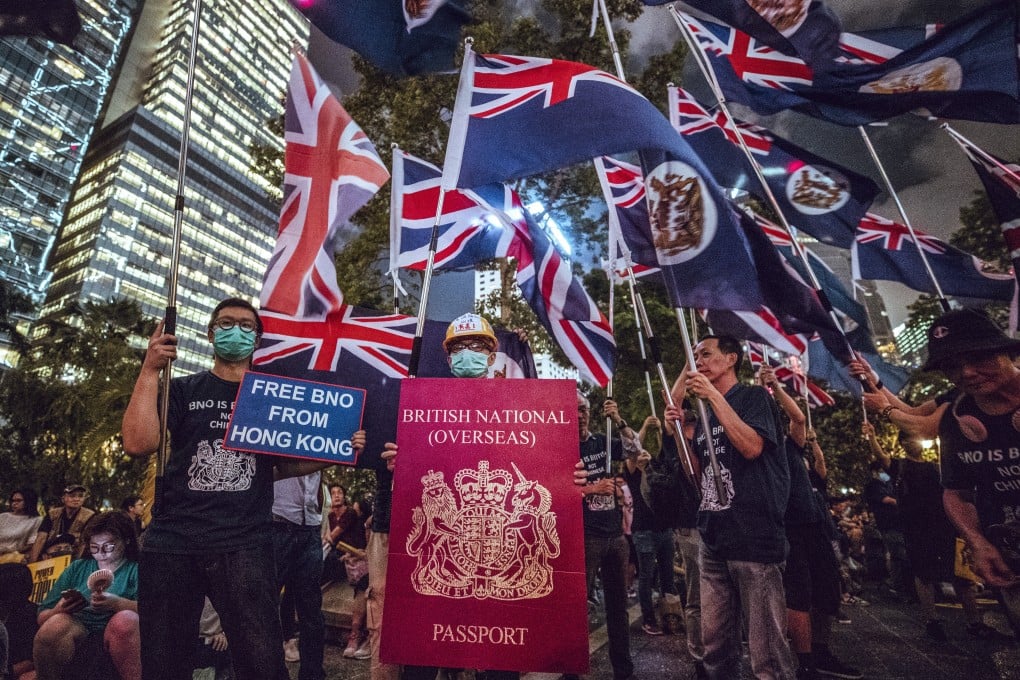Are Hong Kong protesters pro-American or British when they wave the US and UK flags? The answer is complicated
- The flying of flags of other countries at protests is often cited as evidence of foreign interference or an attempt to spark an uprising against central government
- But ask the flag-bearers themselves and the picture is more nuanced and quite different from these assumptions

They are also often cited as evidence of foreign interference or part of a “colour revolution”, in which foreign hands are trying to steer an uprising against the central government.
But ask the flag-bearers themselves and the picture is more nuanced and quite different from these assumptions, at least according to interviews the Post conducted over the past weeks.

Elsewhere in the area, a dozen colonial British flags fluttered in the evening breeze. Apart from foreign flags, a scattering of pro-independence flags for movements in Hong Kong and Taiwan have also been sighted at protests, a different provocation that analysts said would also likely irritate Beijing.
There have been 11 consecutive weekends of protests against the now-shelved extradition bill that would have allowed the transfer of fugitives to jurisdictions such as mainland China.